multi-layered glass
with landscape decoration cleared with acid
decor in interlayer
Signed " Gallé "
Perfect condition
France
early 20th century
height 33,5 cm
width 17,5 cm
depth 13,5 cm
our web catalog link :https://galerietourbillon.com/galle-vase-a-decor-de-paysage-lacustre/ Galerie Tourbillon : Free valuation - Buy and Sell at best prices
Biography :
Émile Gallé (1846-1904) wasone of the most outstanding figures of the applied arts of his time and one ofthe pioneers of Art Nouveau, founder andfirst president of the School of Nancy in 1901. After his apprenticeship in the glass trades in Meisenthal, andceramics at the Saint-Clement Faience Factory, Emile Gallé was associated with his father's business in themanufacture of earthenware and glassware since 1867. He represented his fatherat the 1867 World Fair in Paris where he obtained an honorable mention forglassware and at the World and International Exhibition from 1872 to Lyon wherehe won a gold medal in class 33 (porcelain and crystals). His approach wqs not just theoretical, he did not fear indeed to learnglass-blowing. He added to this a good knowledge of cabinetmaking and especiallythe family passion for the natural sciences and especially for plants that ledto drawing. Gallé was in Nancy thestudent of Dominique-Alexandre Godron, naturalist and doctor. He carried outstudies on plants, animals, insects. He was elected secretary of the CentralHorticultural Society of Nancy in 1877. The same year, Emile Gallé took over the family business and expandedits activities to cabinetmaking in 1885. Already noticed at the Exposition“Earth and Glass” in 1884, Gallé was dedicated to the UniversalExhibition of Paris in 1889 by three awards for his ceramics, glassware andfurniture (including a Grand Prix for his glassware), where he celebratedthe lost provinces of the Alsace and Lorraine regions and developped, throughhis symbolic decoration, the theme of patriotism. On this occasion, Gallé wasmade an officer of the Legion of Honor. From that date, Emile Gallé intensivelydevelopped his technical and aesthetic research on glass work, a field in whichhe developped and created new manufacturing processes. His glassworks weredesigned in Meisenthal until 1894, when he opened a crystal factory whosefiring took place in May 1894 in his company in Nancy. Emile Gallé's research led in 1898 to the filing of two patents, for"a kind of decoration and patina on crystal" and "a kind ofmarquetry of glasses and crystals" by depositing small inclusions ofglass in the molten paste. His pieces were then reworked by engraving, at thewheel for the most precious, hydrofluoric acid for the most common, hisengravers-decorators thus giving a cameo decor on a lined or multilayeredglass. After the death of Emile Galléin 1904, his company continued to produce until 1936. Each piece bears thesignature of Gallé with hundreds of variants.


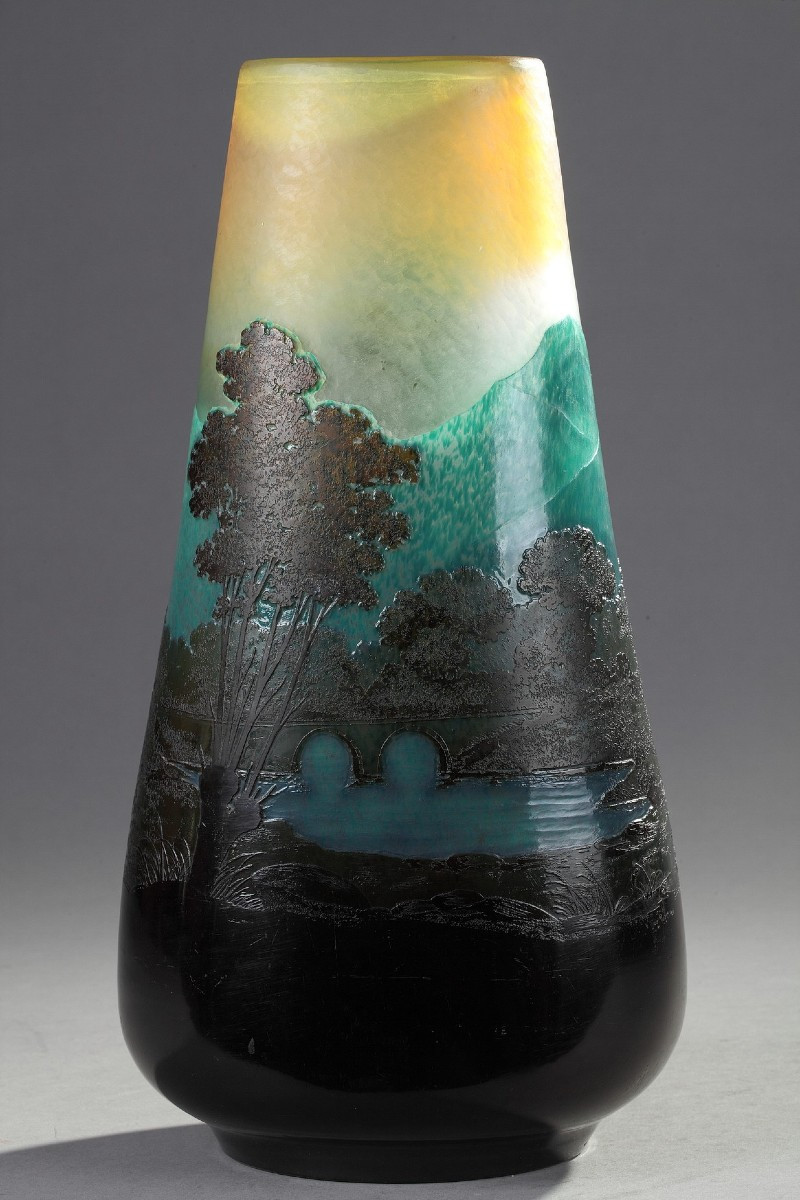
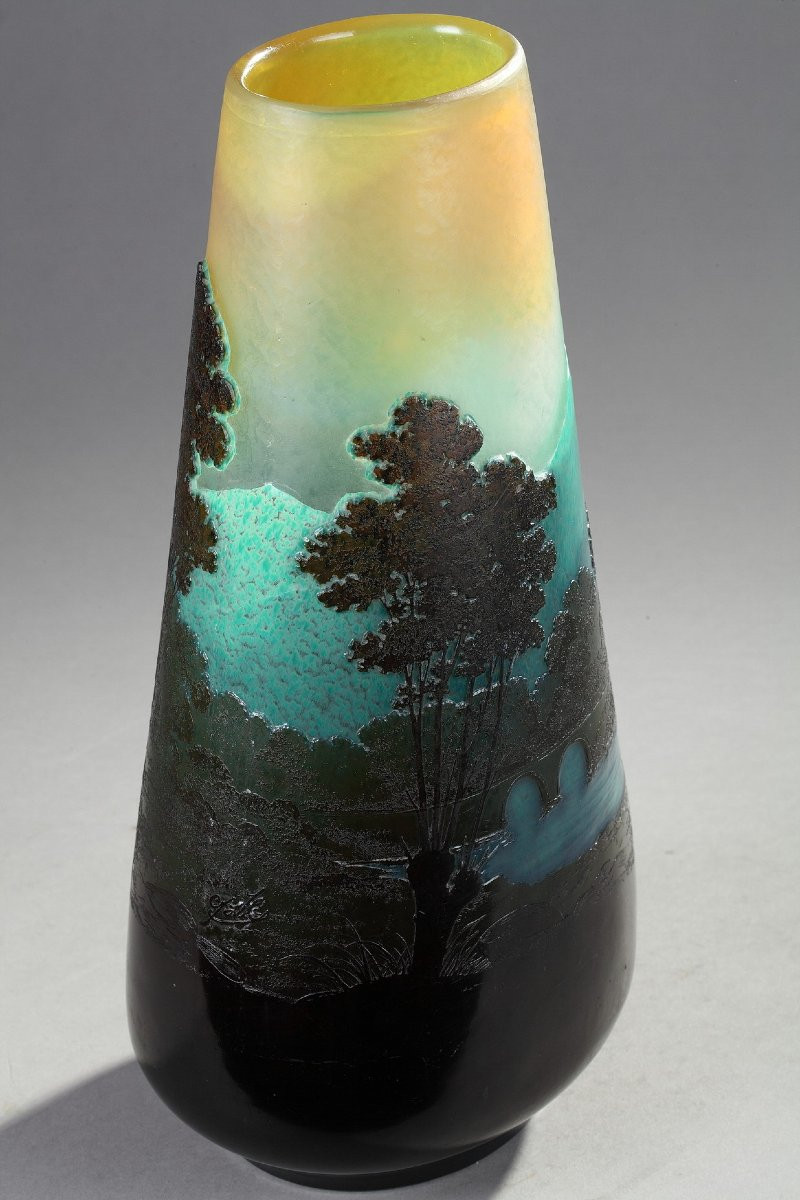
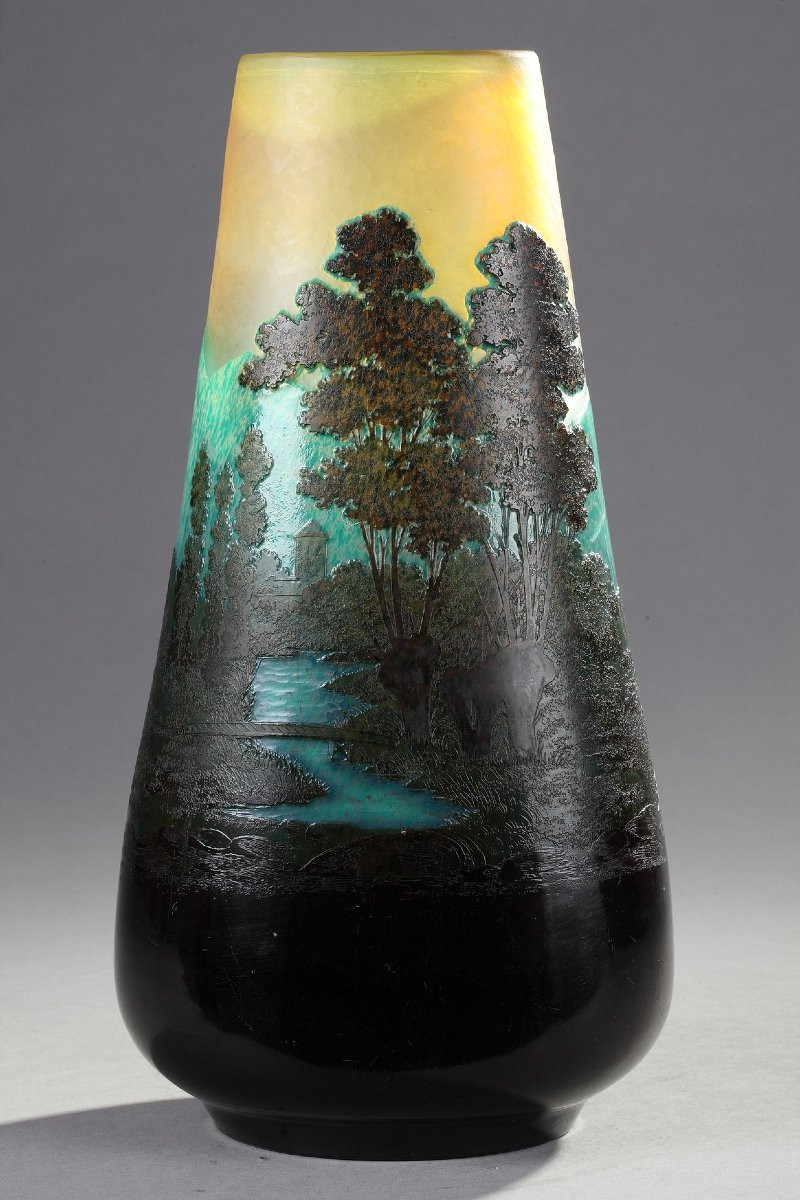
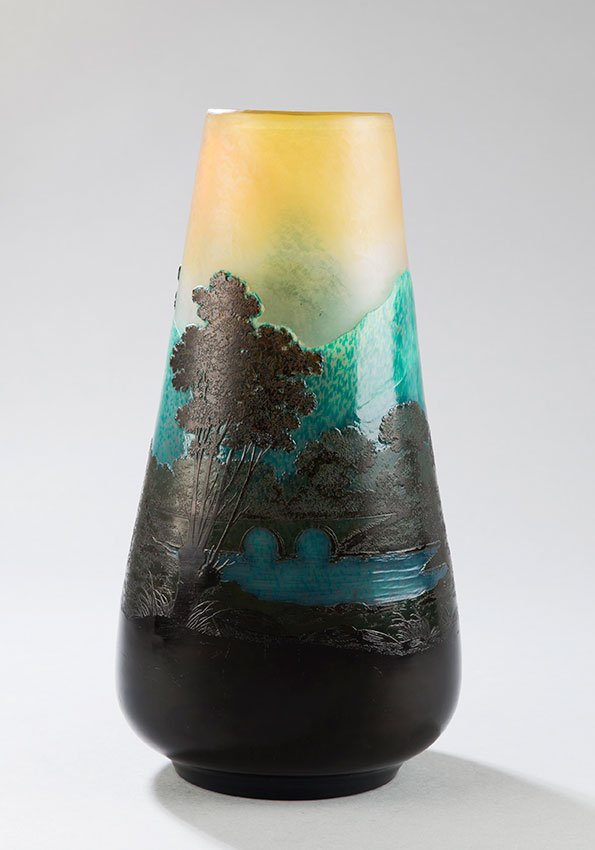
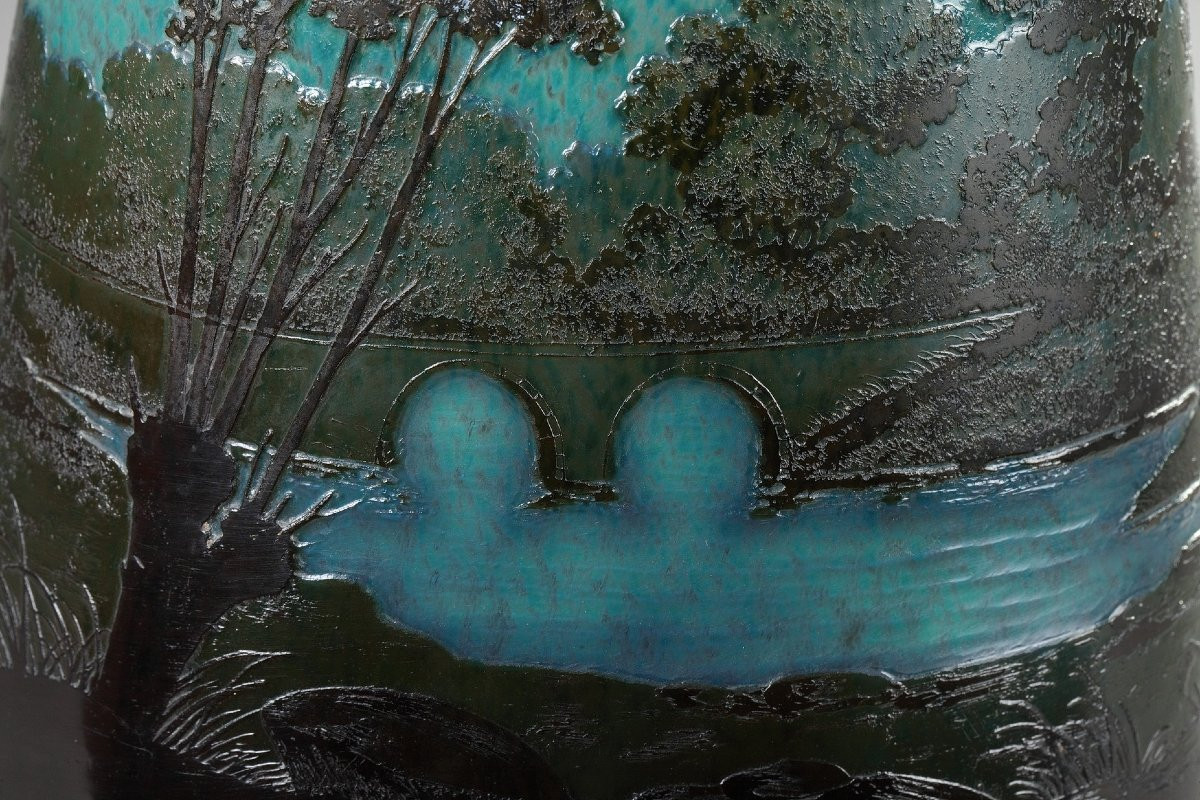

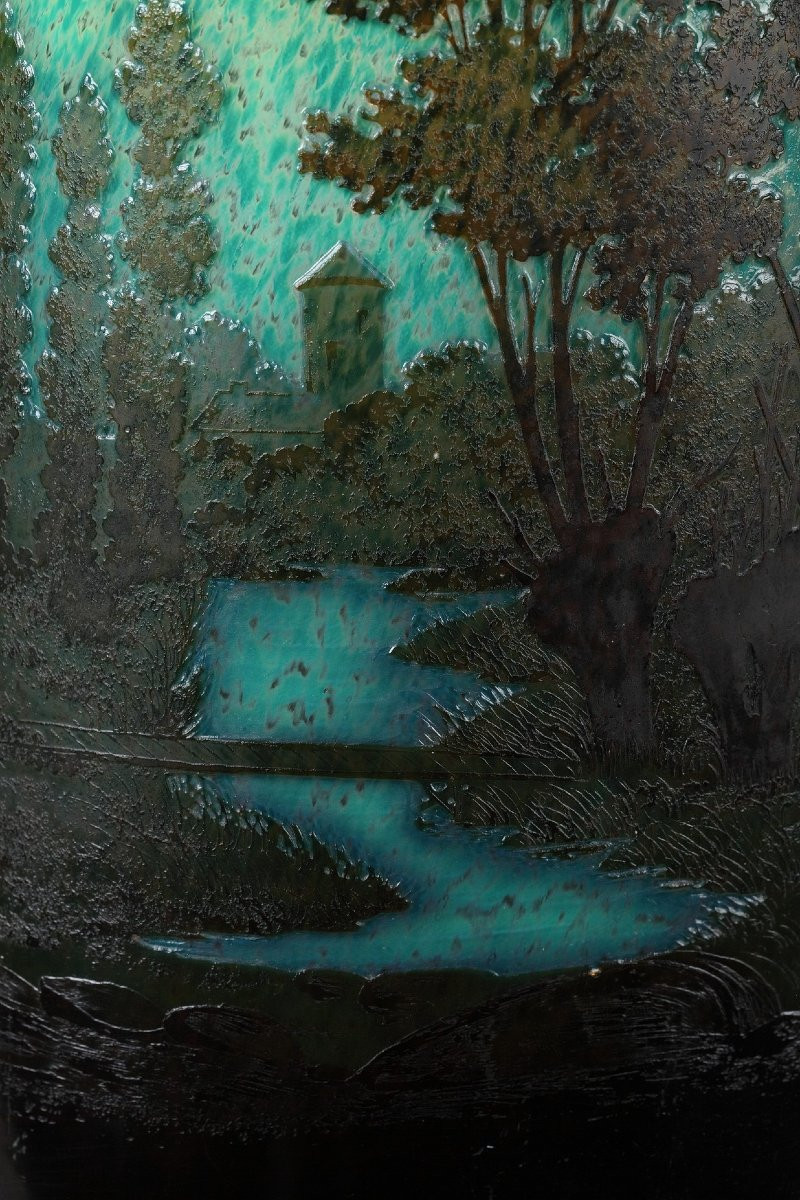



















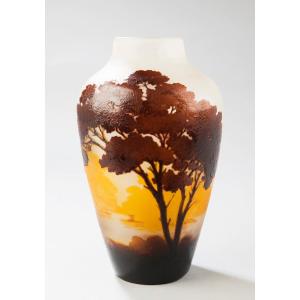
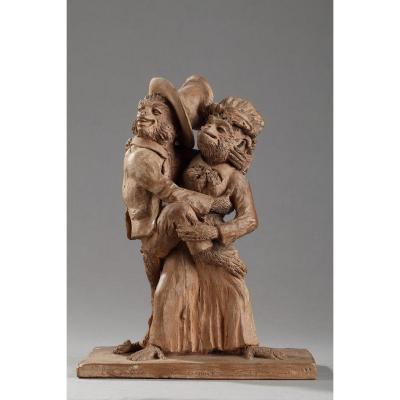

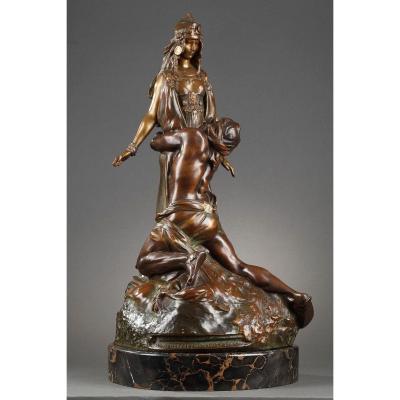
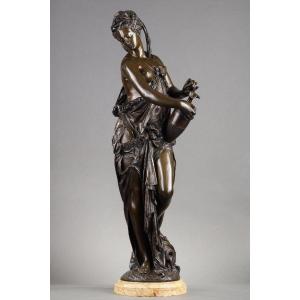






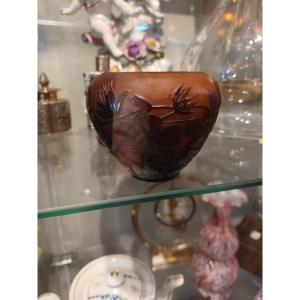



 Le Magazine de PROANTIC
Le Magazine de PROANTIC TRÉSORS Magazine
TRÉSORS Magazine Rivista Artiquariato
Rivista Artiquariato